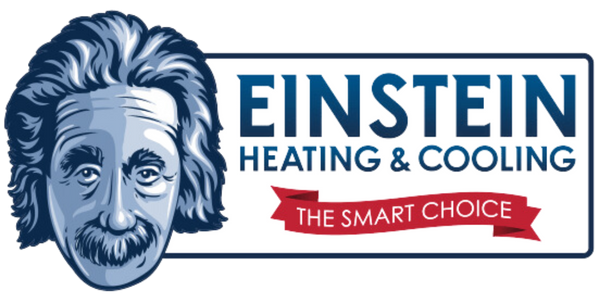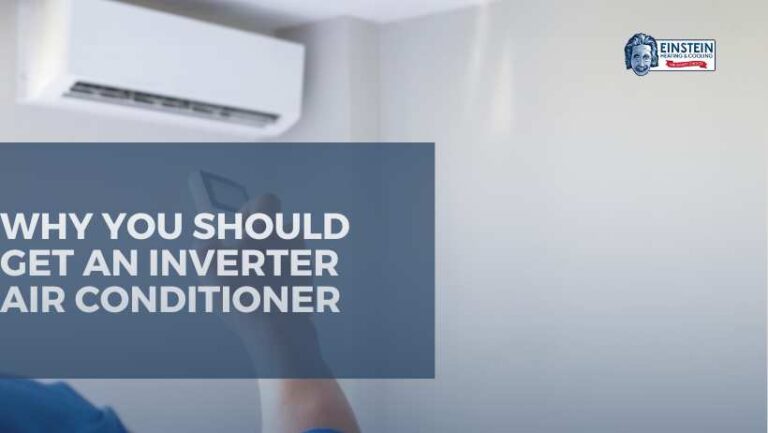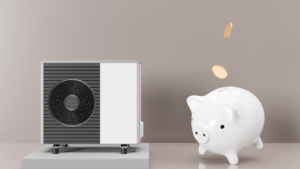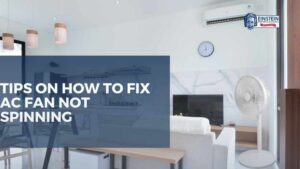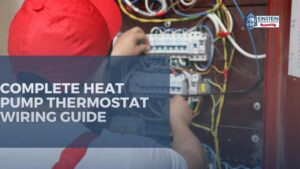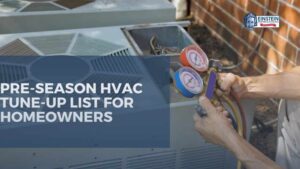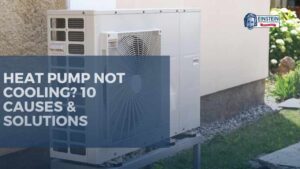In recent years, the inverter air conditioner has emerged as a technological marvel, revolutionizing the way we cool our living spaces. Unlike traditional air conditioning systems, these innovative devices offer a range of benefits that extend beyond mere temperature control. In this comprehensive blog post, we will delve into the intricacies of inverter air conditioners, exploring their features, advantages, and why they are becoming the preferred choice for many households.
1. Energy Efficiency
Variable Speed Compressors
At the heart of inverter air conditioners lies the variable speed compressor technology. Unlike conventional AC units that operate at a fixed speed, inverter ACs adjust the compressor speed based on the cooling requirements. This dynamic modulation ensures optimal energy usage, leading to significant energy savings.
Reduced Energy Consumption
Inverter air conditioners are renowned for their energy-efficient operation. By eliminating the need for frequent starts and stops, these systems consume less power, resulting in lower electricity bills. The ability to maintain a consistent temperature without constant cycling contributes to their eco-friendly reputation.
SEER Ratings
The Seasonal Energy Efficiency Ratio (SEER) is a crucial metric when evaluating the efficiency of air conditioners. Inverter ACs often boast higher SEER ratings compared to traditional counterparts, indicating their superior performance and reduced environmental impact.
2. Precise Temperature Control
Constant Comfort
One of the standout features of an inverter AC is its ability to provide precise temperature control. The variable speed technology allows these units to maintain a steady temperature, eliminating the uncomfortable temperature fluctuations experienced with traditional ACs.
Quick Cooling and Heating
Inverter ACs excel at reaching the desired temperature quickly. The compressor adjusts its speed to meet the cooling or heating requirements promptly, ensuring you experience comfort without unnecessary delays.
Temperature Stability
Inverter technology ensures temperature stability by making continuous, subtle adjustments to the compressor speed. This results in a consistent and comfortable indoor environment, enhancing the overall experience for users.
3. Quiet Operation
Noise Reduction
An inverter AC is known for its quiet operation. The variable speed compressor operates more smoothly and generates less noise compared to traditional AC units, providing a peaceful and undisturbed living environment.
Sleep Mode
Many inverter AC models come equipped with a dedicated sleep mode. This feature not only adjusts the temperature for a more comfortable sleep but also ensures quieter operation during the night. The reduced noise levels contribute to uninterrupted and restful sleep.
Noise Levels Comparison
When compared to non-inverter counterparts, inverter air conditioners consistently score higher in noise level comparisons. The subdued operation makes them an ideal choice for bedrooms, living rooms, and other areas where noise pollution is a concern.
4. Extended Lifespan
Reduced Wear and Tear
The variable speed technology in inverter air conditioners results in reduced wear and tear on the system components. The compressor experiences fewer start-up and shutdown cycles, leading to a longer lifespan for the unit.
Enhanced Durability
The precise control over the compressor speed not only contributes to energy efficiency but also enhances the overall durability of the inverter AC. With fewer mechanical stresses, these systems can withstand the test of time, providing long-term value for homeowners.
Maintenance Benefits
Inverter air conditioners generally require less maintenance compared to traditional models. The reduced strain on components and the efficient operation result in fewer breakdowns, translating to lower maintenance costs over the lifespan of the unit.
5. Cost Savings
Long-Term Investment
While the initial cost of inverter air conditioners may be higher than traditional models, the long-term savings in energy bills and maintenance costs make them a sound investment. Homeowners can recoup the initial investment through reduced monthly expenses.
Government Incentives
In some regions, governments offer incentives and rebates for the HVAC installation of energy-efficient appliances, including inverter air conditioners. Exploring these programs can further enhance the cost-effectiveness of upgrading to an inverter AC system.
Dual Functionality
Many inverter aircon come with both heating and cooling capabilities. This dual functionality eliminates the need for separate heating systems, providing additional cost savings for homeowners.
6. Environmentally Friendly
Reduced Carbon Footprint
The energy-efficient operation of inverter air conditioners translates to a reduced carbon footprint. Lower energy consumption means fewer greenhouse gas emissions, contributing to a more environmentally friendly and sustainable choice for cooling needs.
Refrigerant Technology
Inverter ACs often incorporate advanced refrigerant technologies that are eco-friendly. Using refrigerants with lower Global Warming Potential (GWP) aligns with the global efforts to minimize the environmental impact of cooling systems.
Regulatory Compliance
As environmental awareness grows, regulations concerning energy efficiency and environmental impact become more stringent. Inverter air conditioners, with their high efficiency and eco-friendly features, align with these regulations and standards, making them a responsible choice for consumers.
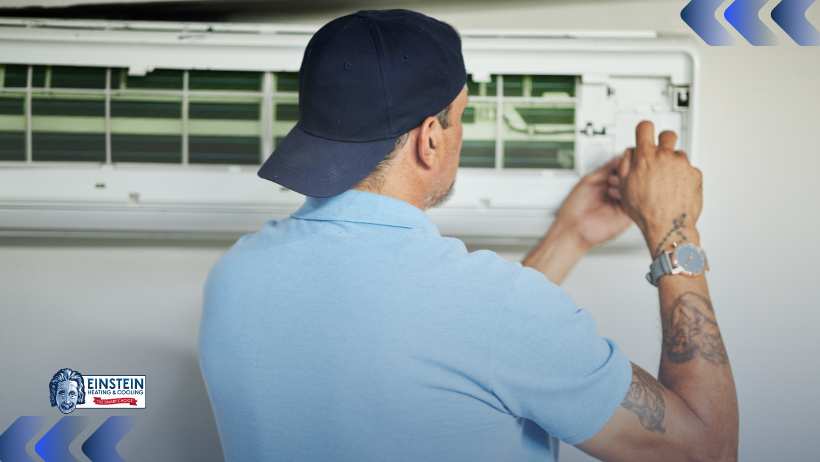
7. Smart Technology Integration
Wi-Fi Connectivity
Many modern inverter air conditioners come equipped with smart technology features, including Wi-Fi connectivity. This allows users to control and monitor their AC units remotely through mobile apps, providing convenience and energy management capabilities.
Smart Thermostat Compatibility
An inverter AC seamlessly integrates with smart thermostats, allowing users to create personalized cooling schedules and optimize energy usage. This level of control enhances comfort and contributes to further energy savings.
Energy Usage Monitoring
Smart inverter ACs often provide real-time energy usage data, empowering users to make informed decisions about their cooling habits. The ability to monitor and adjust energy consumption contributes to a more sustainable and cost-effective home environment.
Comparing Inverter AC vs Non-Inverter ACs
I. Energy Efficiency
1. Inverter Air Conditioner:
Inverter air conditioners are renowned for their energy-efficient operation. Unlike non-inverter ACs that operate at a fixed speed, inverter models adjust their compressor speed based on the cooling demand. This results in consistent and optimal temperature control, reducing energy consumption and lowering electricity bills.
2. Non-Inverter AC:
Non-inverter air conditioners, on the other hand, operate at a fixed speed, leading to frequent starts and stops. This results in higher energy consumption as the system continuously powers up to meet the desired temperature and then shuts down. In comparison to inverter air conditioners, non-inverter models are generally less energy-efficient.
II. Temperature Control Precision
1. Inverter Air Conditioner:
Inverter ACs provide precise temperature control by modulating the compressor speed. This not only ensures a more stable and comfortable indoor climate but also prevents temperature fluctuations, providing an optimal cooling experience.
2. Non-Inverter AC:
Non-inverter ACs cannot modulate compressor speed, leading to less precise temperature control. The on-off cycling can result in temperature variations, making the indoor environment less comfortable compared to inverter air conditioners.
III. Cooling Speed and Performance
1. Inverter Air Conditioner:
Inverter ACs excel in cooling speed and performance. The variable-speed compressor adjusts its pace according to the cooling requirements, achieving the desired temperature more efficiently. This results in faster cooling and better performance, especially during extreme weather conditions.
2. Non-Inverter AC:
Non-inverter air conditioners operate at a fixed speed, which may lead to slower cooling times. The system takes longer to reach the desired temperature, particularly when faced with high ambient temperatures. This can impact the overall comfort and efficiency of the cooling process.
IV. Initial Cost and Installation
1. Inverter Air Conditioner:
While inverter air conditioners tend to have a higher upfront cost compared to non-inverter ACs, the long-term energy savings often offset the initial investment. TheHVAC installation process is generally similar for both types of units, requiring a professional technician to ensure proper setup.
2. Non-Inverter AC:
Non-inverter air conditioners typically have a lower initial cost, making them more budget-friendly for consumers looking for an affordable cooling solution. However, it’s essential to consider the potential higher long-term operating costs due to increased energy consumption.
V. Maintenance and Durability
1. Inverter Air Conditioner:
Inverter ACs generally require less maintenance due to their ability to operate at lower speeds during periods of lower demand. The reduced wear and tear on components contribute to increased durability, resulting in a longer lifespan for the unit.
2. Non-Inverter AC:
Non-inverter air conditioners may experience higher wear and tear due to frequent starts and stops. This can lead to more maintenance requirements and a potentially shorter lifespan compared to inverter air conditioners.
VI. Noise Level
1. Inverter Air Conditioner:
Inverter ACs are known for their quieter operation. The variable-speed compressor allows the unit to run at lower speeds during periods of lower demand, resulting in reduced noise levels compared to non-inverter models.
2. Non-Inverter AC:
Non-inverter air conditioners can be noisier, especially during the on-off cycling. The abrupt starts and stops may contribute to a higher noise level, potentially causing discomfort for occupants, particularly in quieter environments.
VII. Adaptability to Variable Load
1. Inverter Air Conditioner:
Inverter ACs excel in adapting to variable cooling loads. The variable-speed compressor adjusts its output based on the specific requirements, ensuring optimal performance and efficiency in varying conditions.
2. Non-Inverter AC:
Non-inverter air conditioners struggle with variable loads, as they operate at a fixed speed. This can result in inefficient cooling during times of lower demand, contributing to higher energy consumption.
VIII. Voltage Fluctuation Tolerance
1. Inverter Air Conditioner:
Inverter ACs often come equipped with technology that enhances their tolerance to voltage fluctuations. This feature ensures consistent performance even in areas with unstable power supplies.
2. Non-Inverter AC:
Non-inverter air conditioners may be more susceptible to damage in areas with frequent voltage fluctuations. The fixed-speed operation makes them less resilient to power fluctuations, potentially leading to more frequent breakdowns.
IX. Overall Efficiency and Performance
1. Inverter Air Conditioner:
An inverter aircon stands out in terms of overall efficiency and performance. The combination of energy-efficient operation, precise temperature control, and adaptability to variable loads contributes to a superior cooling experience with lower operating costs.
2. Non-Inverter AC:
Non-inverter air conditioners offer a more budget-friendly upfront cost, but their overall efficiency and performance may be compromised. The fixed-speed operation, along with higher energy consumption, can result in a less efficient and cost-effective cooling solution over time.
Conclusion
Inverter air conditioners have undoubtedly transformed the landscape of residential cooling. Their energy efficiency, precise temperature control, quiet operation, extended lifespan, cost savings, environmental friendliness, and integration with smart technologies make them a compelling choice for homeowners. As technology continues to advance, an inverter aircon is likely to become even more prevalent, providing a comfortable and sustainable solution for cooling needs in the years to come.
